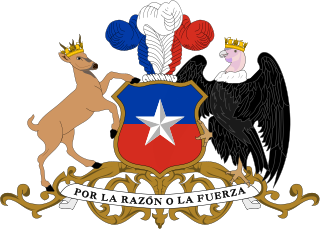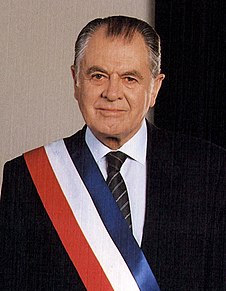
Politics of Madagascar takes place in a framework of a semi-presidential representative democratic republic, whereby the President of Madagascar is head of state and the Prime Minister of Madagascar is head of government, and of a pluriform multi-party system. Executive power is exercised by the government. Legislative power is vested in both the government and the Senate and the National Assembly. The Judiciary is independent of the executive and the legislature.

The Constitution of the Republic of Lithuania defines the legal foundation for all laws passed in the Republic of Lithuania. It was approved in a referendum on 25 October 1992.
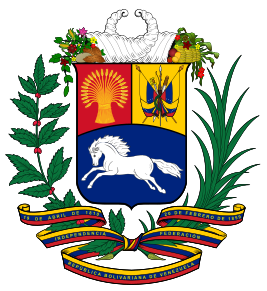
Elections in Venezuela are held at a national level for the President of Venezuela as head of state and head of government, and for a unicameral legislature. The President of Venezuela is elected for a six-year term by direct election plurality voting, and is eligible for re-election. The National Assembly (Asamblea Nacional) has 165 members (diputados), elected for five-year terms using a mixed member majoritarian system. Elections also take place at state level and local level.

Elections in Niger take place within the framework of a semi-presidential system. The President and National Assembly are elected by the public, with elections organised by the Independent National Electoral Commission (CENI).

Elections in Guyana take place within the framework of a multi-party representative democracy and a presidential system. The National Assembly is directly elected, with the nominee of the party or alliance that receives the most votes becoming President.

A constitutional referendum was held in France on 5 May 1946. Voters were asked whether they approved of a new draft Constitution proposed by the Constituent Assembly elected in 1945.

A referendum on the direct election of the President was held in France on 28 October 1962. The question was whether to have the president of the French Republic elected by direct popular vote, rather than by an electoral college. It was approved by 62.3% of voters with a 77.0% turnout. However, the reform was controversial because it strengthened the executive at the expense of Parliament, and because of the disputed constitutionality of the procedure used.
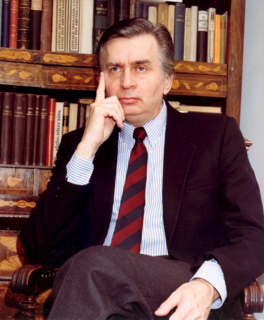
The 1990 Hungarian parliamentary elections were held in Hungary on 25 March 1990, with a second round of voting taking place in all but five single member constituencies on 8 April. They were the first completely free and competitive elections to be held in the country since 1945, and only the second free elections in the country's history. The conservative, nationalist Hungarian Democratic Forum (MDF) beat the liberal and more internationalist Alliance of Free Democrats, which had spearheaded opposition to Communist rule in 1989, to become the largest party in parliament. The Hungarian Socialist Party, the former Communist party, suffered a crushing defeat, winning only 33 seats for fourth place.
A Spanish constitutional referendum was held on Wednesday, 6 December 1978, to gauge support for either the ratification or repealing of the Spanish Constitution which had been approved by the Cortes Generales on 31 October 1978. The question asked was "Do you approve of the Constitution Bill?". The referendum resulted in 91.8% of voters supporting the bill on a turnout of 67.1%.

The Constitution of Guyana is the highest governing document in the Republic of Guyana. It came into effect on October 6, 1980, replacing the constitution enacted in 1966 upon its independence from the United Kingdom. The current Constitution of Guyana contains 12 chapters that are further divided into 232 articles. It also contains a preamble and an oath. Since its 1980 enactment, it has gone through multiple amendments.

General elections were held in Brazil on 4 October 1998, with a second round on 25 October. In the first round Fernando Henrique Cardoso was re-elected President and the governorships of 14 states were elected, in addition to all seats in the Chamber of Deputies and Legislative Assemblies, and one third of the seats in the Federal Senate. In the second round the governorships of 12 states and the Federal District were defined. This election was marked by the use of voting machines for the first time ever. They would have been used in all municipalities two years later, in the 2000 local elections.
A Spanish political reform referendum was held on Wednesday, 15 December 1976, to gauge support for either the ratification or repealing of the Political Reform Act which had been approved by the Spanish Cortes on 18 November 1976. The question asked was "Do you approve of the Political Reform Bill?". The referendum resulted in 97.4% of voters supporting the bill on a turnout of 77.7%.
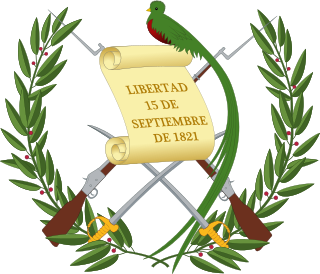
Parliamentary elections were held in Guatemala on 14 August 1994, following the premature dissolution of Congress during the 1993 constitutional crisis, and in view of implementing constitutional reforms approved in January 1994. The result was a victory for the Guatemalan Republican Front, which won 33 of the 80 seats. Voter turnout was just 21%.
The Republic of Panama held a parliamentary election on 5 May 1945, electing a Constitutional Assembly.

A constitutional referendum was held in the Democratic Republic of the Congo between 4 and 16 June 1967. The new constitution created a unitary state with a presidential system, whereby the president would be selected by a unicameral National Assembly and then approved by a referendum. It also abolished presidential term limits, limited the number of political parties to two, and gave women the vote.

A constitutional referendum was held in Panama on 30 August 1998. Voters were asked whether they approved of amending the 1972 constitution to allow the President to be re-elected. Only 34.3% voted in favour of the reforms, with a turnout of 65.4%.

A constitutional referendum was held in Suriname on 30 September 1987. Voters were asked to approve the country's new constitution. It provided for a 51-seat unicameral National Assembly elected by proportional representation, a President elected by the National Assembly. Over 96% voted in favour, with a turnout of 62.7%.

Constitutional Assembly elections were held in Latvia on 17 and 18 April 1920. The Latvian Social Democratic Workers' Party emerged as the largest party, winning 57 of the 150 seats. The elections were boycotted by communist parties. The Constitutional Assembly was responsible for drafting a constitution, which was approved on 15 February and promulgated on 7 November 1922.

A consultative constitutional referendum was held in Moldova on 23 May 1999. It was initiated by President Petru Lucinschi and asked voters whether they approved of changing the system of government to a presidential system. The proposal was approved by 64.2% of voters. However, the Party of Communists of the Republic of Moldova and the Alliance for Democracy and Reforms opposed Lucinschi, and were able to vote several constitutional changes through parliament on 5 July 2000. The changes reduced the powers of the president and strengthened the parliament and government.

Constitutional Assembly elections were held in Colombia on 9 December 1990 alongside a referendum on the Assembly itself. The Assembly sat from February to July 1991 and drew up the 1991 constitution.



